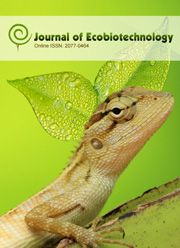Cultural Physiology: Effect of Culture Mediums and pH on the Growth, Sporulation and Secondary Metabolites Production of Aspergillus Umbrosus
Abstract
Selection of a suitable medium, pH, incubation period, temperature etc., for the cultivation of microorganisms are very important for their growth, sporulation and their ability to produce secondary metabolites, for product formation like organic acid, fermented products and antibiotic production etc. The experiment carried out for the objectives include determination of the effects of nutritional and cultural factors in an in-vitro study were performed for Aspergillus umbrosus. Several culture mediums were experimented for the studies. In this paper records given for three synthetic culture mediums tested was, Asthana & Hawker’s, Pferrer’s, and Currie’s at different pH viz.; 3.5, 4.0, 4.5, 5.0 & 5.5. The incubation period of 12 days, culture broth medium was taken, temperature 30°C, dry mycelium weight was taken as biomass. Sporulation was visualised, secretion of secondary metabolites was also observed as an exudates, creates reverse colouration in the medium. In all three mediums experimented the growth of A. umbrosus was found nil at pH 3.5 in Asthana and Hawker’s and Currie’s medium, and in all cases it was optimum at pH 5.0 after that at pH 5.5 there were decrease in growth rate, sporulation was moderate & secondary metabolite production in the form of reverse coloration were moderate i.e. light brown in Currie’s medium. Results indicated that amongst these three medium tested fungal growth, sporulation & secondary metabolite production is the best in Currie’s medium but it was also not up to satisfactory level.



 .
.